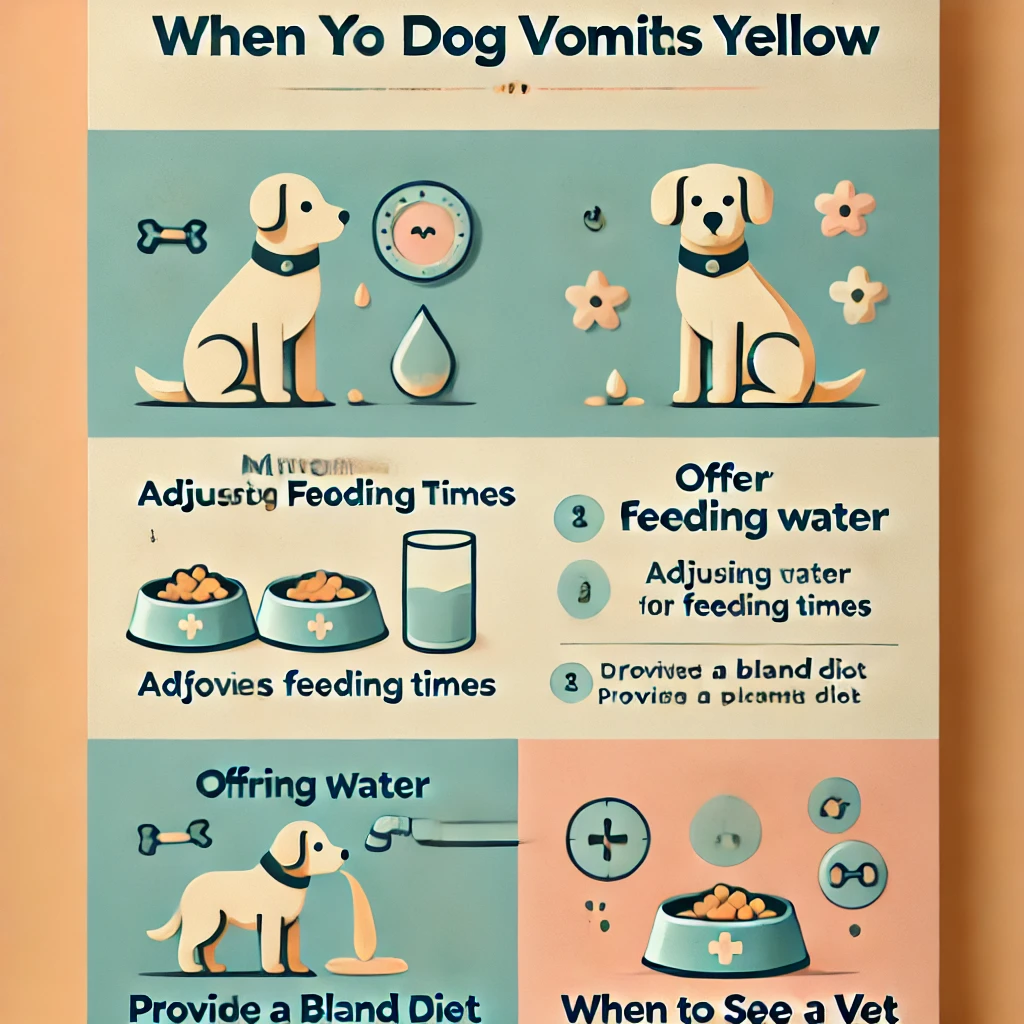When your dog vomits yellow, it can be worrying and you may not know what to do next. This in-depth guide will cover the possible causes of yellow vomiting in dogs, how you can help your four-legged friend, and when it's time to seek veterinary help.
Yellow vomiting in dogs is a common problem that many pet owners face. Although it may be harmless, it is essential to understand the potential causes and know how to take action.

Common Causes of Yellow Vomiting in Dogs
Bile Acid
Yellow vomit often contains bile, a digestive fluid produced by the liver. Bile is yellow or green and can be released when the stomach is empty for long periods.
Irregular Feeding
Long gaps between meals can cause irritation to your dog's stomach, leading to yellow vomit.
Food Intolerance or Allergy
Some foods may not be well tolerated by your dog's digestive system, resulting in vomiting.
Indigestion
Eating quickly or consuming something inappropriate can cause discomfort and yellow vomiting.
What to Do When Your Dog Vomits Yellow
Monitoring
Observe your dog's behavior after the vomiting episode. Check to see if he continues to vomit, lethargy, or any other concerning symptoms.
Power Adjustment
Feed your dog smaller, more frequent portions to prevent his stomach from being empty for long periods.
Hydrate Your Dog
Make sure your dog is drinking plenty of water to avoid dehydration.
Soft Diet
Consider temporarily offering a bland diet, such as boiled chicken and rice, to help calm your dog's stomach.
When to Look for a Veterinarian
Frequent Vomiting
If vomiting persists or occurs several times a day, see a veterinarian.
Other Symptoms
Lethargy, loss of appetite, diarrhea or any other concerning symptoms should be evaluated by a professional.
Suspected Intoxication
If you suspect your dog has ingested something toxic, seek immediate help.
Veterinary Diagnosis
Your veterinarian may perform physical exams, blood tests, x-rays, or ultrasounds to determine the cause of the vomiting.
Possible Treatments
Medicines
The veterinarian may prescribe antiemetics to control vomiting or other specific medications depending on the cause.
Rehydration Therapy
If your dog is dehydrated, fluids may be necessary.
Diet Changes
Dietary recommendations may be provided to prevent future episodes.
Preventing Yellow Vomiting in Dogs
Regular Eating
Maintain a regular feeding routine with appropriate portions for your dog.
Supervision
Prevent your dog from having access to inappropriate foods or potentially toxic substances.
Veterinary check-ups
Regular vet visits help monitor your dog's overall health and prevent digestive problems.
Conclusion
Yellow vomiting in dogs can be a sign of a number of conditions, from something as simple as hunger to more serious issues. Monitoring your dog, adjusting its diet and seeking veterinary help when necessary are essential steps to ensuring your pet's health and well-being.
FAQs
-
Why does my dog vomit yellow in the morning? This usually occurs because your dog's stomach is empty and bile is released. Feeding your dog smaller, more frequent portions can help.
-
Can changing your diet help with yellow vomit? Yes, a bland diet and adjustments in meal frequency can help alleviate the problem.
-
Is yellow vomit always a sign of serious illness? No, not always. It could be something as simple as hunger or indigestion, but it is important to monitor and see a veterinarian if the problem persists.
-
What can I give my dog to prevent yellow vomiting? Feeding your dog regularly, with a proper diet and sufficient hydration, can help prevent yellow vomiting.
-
When should I worry about my dog vomiting? If vomiting is frequent, accompanied by other symptoms such as lethargy or diarrhea, or if you suspect poisoning, see a veterinarian immediately.









